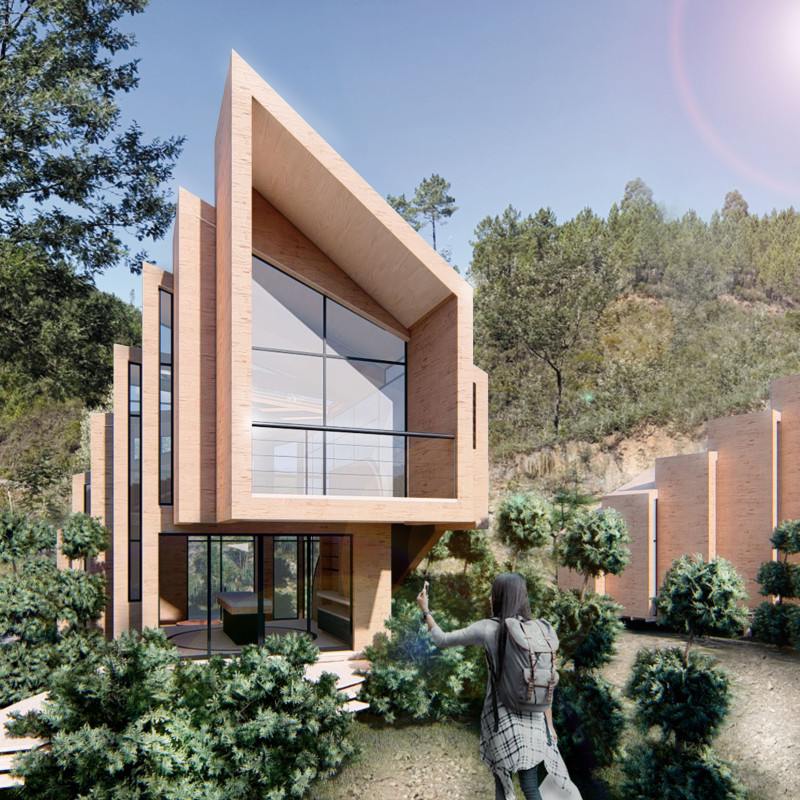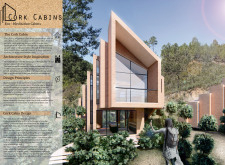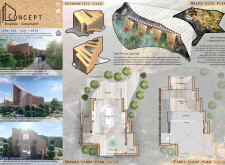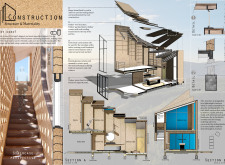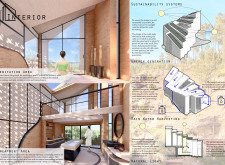5 key facts about this project
Sustainable Material Usage
A distinguishing characteristic of this project is its careful selection of materials, emphasizing local resources to reduce environmental impact. The primary material used is cork, favored for its insulating properties and sustainability. Additional materials include timber for structural elements, double glazing to enhance energy efficiency, steel for durability, and large glass panels to facilitate natural light penetration. This thoughtful material choice not only enhances the aesthetic qualities of the cabins but also reflects a commitment to environmental responsibility.
Innovative Design Approaches
The design of the Eco-Meditation Cabins incorporates innovative approaches to create a relationship between structure and site. Each cabin is characterized by angular forms and a dynamic roof profile, which allow for open vistas and maximize natural light. The interior layout addresses spaces for meditation and wellness treatment, ensuring they blend harmoniously with the natural environment. Features such as large windows create a visual connection with the landscape, promoting a sense of openness while retaining personal privacy.
Sustainable features are integral to the project, including rooftop solar panels for energy generation and rainwater harvesting systems that enhance the self-sufficiency of the cabins. Natural ventilation pathways are carefully integrated into the design to minimize reliance on mechanical systems, thereby promoting an eco-friendly operation.
The Eco-Meditation Cabins project exemplifies modern architecture's potential to create functional spaces that prioritize sustainability and user experience. Those interested in the detailed architectural plans, sections, and design insights are encouraged to explore the project presentation for a comprehensive understanding of its features and innovations.


